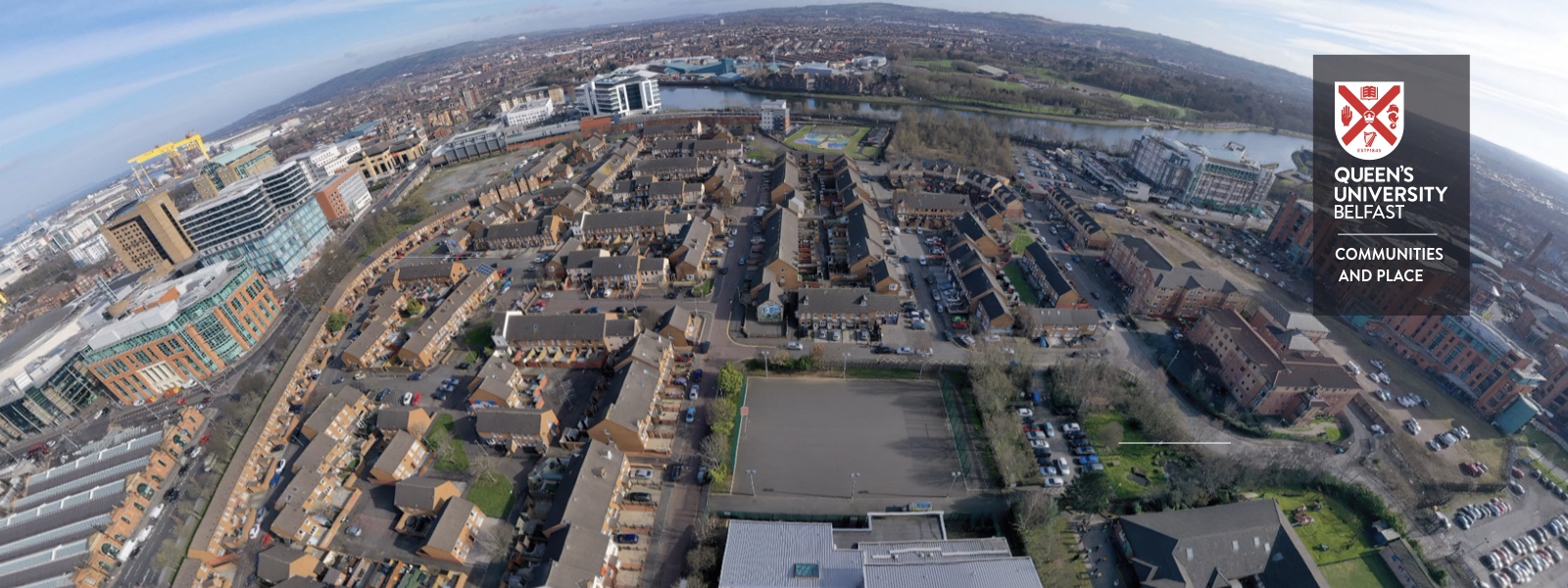At a Glance Summary
This report summarises the first-year findings of ‘Growing Up in the Market’ (GUIM) — an ongoing, 3-year longitudinal study, in which we interview children, young people, and their families about the experience of living in an under-resourced, working-class community in South Belfast.
Our partner community, ‘The Market’, faces significant socioeconomic challenges including high unemployment, inadequate housing, disadvantages in education, poor health outcomes, and conflict-related legacy issues. However, not everyone in the community experiences the same worries, and this makes us wonder about how where you live affects your life.
The study employs qualitative interviews to explore how the community context shapes residents' trajectories across key life domains including education, employment, health, and wellbeing over time. What residents say about the types of capital available in their area, and how this shapes the community’s context, helps us to understand how these inequalities keep happening or sometimes change. We believe it also guides the big decisions people make in their lives.
To understand the specific reasons behind this, in-depth, place-based research like our study, is necessary. The voices of residents inform the actions of our wider initiative - Queen’s Communities and Place (QCAP) and how we, as a university and civic institution, can support local communities to improve their conditions.
Background and Methods
The research utilises a qualitative longitudinal design, collecting narrative interview data from participants across three years. Purposive sampling recruited 61 participants in year one across four cohorts: primary school children, secondary school pupils, young adults, and parents/guardians. Semi-structured interviews were conducted, audio-recorded and analysed using a blended inductive and deductive coding approach.
The study's central research questions are:
Research Question 1. How and why does community context impact attitudes, aspirations and outcomes in wellbeing, health, education and employment?
Research Question 2. How can these insights be harnessed to co-produce targeted interventions supporting the community to address identified needs?
Key Findings
Analysis revealed multifaceted insights into participants' community experiences and navigation of key life domains. Interrelated themes emerged around community identity and bonds, stigma, substance use concerns, educational pathways, and support needs.
- Participants expressed strong community identity and close social ties, fostering perceptions of safety, trust, and mutual support. However, these tight bonds sometimes hindered accessing services, networks and opportunities located externally.
- Many noted escalating substance use issues driving disrupted community relations and safety concerns. Tackling these challenges through accessible treatment services was seen as vital.
- In education, some felt opportunities were limited by financial constraints, lack of information and normalised low expectations. But many adults hoped their children would surpass their own attainment and pursue desired careers.
- Cost-of-living: people in the community are often managing on low incomes, however the rising costs particularly of gas and electricity coupled with food prices are creating a great deal of stress.
- Participants underscored needs for more accessible local services alongside options outside community boundaries to expand horizons and networks.
Actions
Given the most pressing need indicated, emerging findings were fed back into the action working groups whereby several immediate actions were planned and initiated.
- A co designed community level substance use intervention programme.
- A response to the cost-of-living crisis focused on healthy eating on a budget.
- Several education interventions aimed at improving access to opportunities for children and young people and supporting adults in returning to education.
- A creative co-created project addressing intergenerational trauma.
Discussion
While not empirically generalisable, these findings illuminate relevant dynamics which may provide insights when working within similarly challenged communities. The research highlights the importance of holistic, localised and co-produced interventions engaging residents to counter stigma, expand educational horizons and promote individual and collective agency.
The study's longitudinal approach will continue to track evolving experiences and perspectives over participants' developmental trajectories. Early insights underscore how community identity and social relationships shape access to services, education and wellbeing. Unfolding impacts of wider societal crises alongside local interventions will also be examined more over time. Ultimately the research aims to inform community-centred policies to catalyse the social changes communities aspire to.

